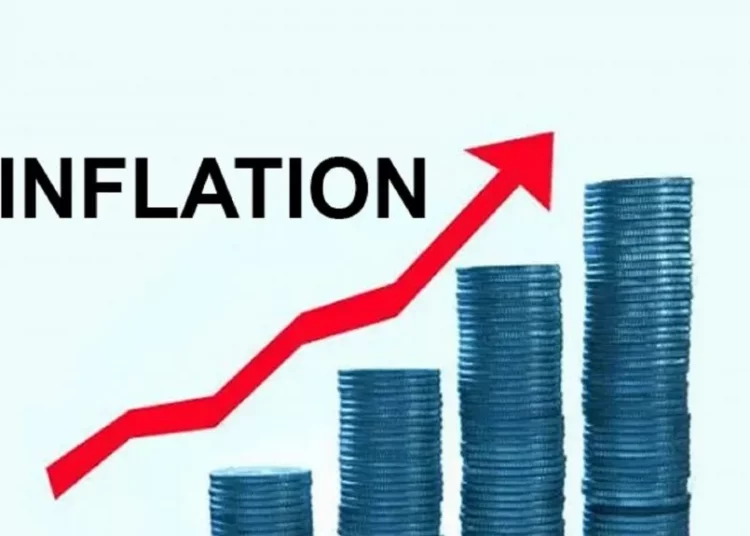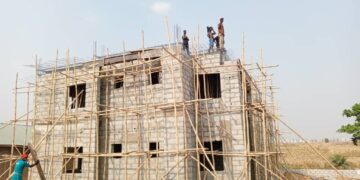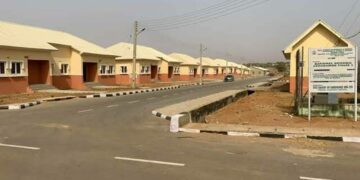The Central Bank of Nigeria (CBN) and the Federal Ministry of Finance have jointly unveiled a comprehensive economic framework known as the Dis-Inflation and Growth Acceleration Strategy (DGAS), designed to achieve a minimum of 7% annual Gross Domestic Product (GDP) growth while steadily reducing inflation to single digits.
The monetary and fiscal authorities also aim to reduce inflation to single digits within 24 months, achieve non-oil GDP growth of at least seven per cent by 2027, and create approximately five million jobs through DGAS-linked interventions.
The strategy represents a unified fiscal and monetary framework that integrates reform and implementation plans to reposition the Nigerian economy for stability, productivity, and competitiveness.
Excerpts of the document were revealed on Tuesday at the 2025 Executive Seminar organised by the CBN in Abuja.
This is as the governor of the CBN, Olayemi Cardoso said the depth of the ongoing reforms, including fiscal consolidation and foreign exchange market liberalisation, had come with short-term challenges but were necessary to reposition the economy on a more sustainable growth path. He explained that the theme of this year’s seminar, “Deepening Reforms: Path to Disinflation and Sustainable Growth,” was designed to consolidate the gains already achieved and to foster greater synergy among policymakers, regulators, and private sector stakeholders.
Cardoso said that one of the critical sub-themes of the seminar, “Reinvigorating Capital Flows and Safeguarding Nigeria’s Financial Markets,” underscored the need to strengthen investor confidence through credible policies, transparent markets, and sound governance. According to him, the CBN has actively embraced these principles over the past two years, resulting in a noticeable return of investor confidence in Nigeria’s financial markets and renewed optimism about the country’s long-term economic prospects.
The DGAS document was co-created by the Ministry of Finance and the CBN as part of the government’s broader economic reform agenda. It marks what minister of state for Finance, Dr Doris Uzoka-Anite, described as “The second wave of reforms” following earlier policy actions on foreign exchange liberalisation and energy pricing.
“The first wave restored market integrity and investor confidence,” Uzoka-Anite stated. “This second phase, through the Dis-Inflation and Growth Acceleration Strategy, provides the architecture to unlock sectoral productivity, expand domestic output, and generate inclusive prosperity for Nigerians.”
Cardoso, described the executive seminar as a strategic platform for reflection, recalibration, and renewed commitment to guiding Nigeria’s economy toward resilience, stability, and inclusive prosperity. He noted that insights generated from previous editions of the forum had consistently informed major policy decisions and strengthened the coordination between fiscal and monetary authorities.
The minister explained that the DGAS framework seeks to achieve sustained economic growth above seven per cent by addressing inflation from the supply side rather than through demand suppression. It aims to lower structural costs, deepen local production, and reduce dependence on imports by mobilising capital, technology, and policy alignment across sectors.
A central feature of the strategy, she said, is the establishment of a single-window implementation platform that will unify development finance, private capital mobilisation, and project execution. The platform will also coordinate monetary and fiscal measures, ensuring that credit interventions and foreign exchange reforms from the CBN reinforce fiscal efforts to boost industrial expansion, job creation, and export growth.
“In essence, DGAS bridges fiscal intent with monetary execution,” Uzoka-Anite said. “It restores coherence between policy, capital, and productivity, allowing the nation to move from fragmented interventions to a coordinated national strategy for growth.”
The DGAS blueprint is built around nine key pillars, including capital mobilisation and financial innovation, sectoral growth acceleration, energy expansion and industrial decarbonisation, technology and digital infrastructure, youth empowerment, consumer credit expansion, and policy coordination.
She added that both the Ministry of Finance and the CBN will jointly monitor implementation through a shared performance and compliance framework anchored on measurable key performance indicators.
The minister expressed optimism that the initiative would usher in a new era of macroeconomic stability, inclusive prosperity, and sustainable development, adding that the strategy’s success depends on governance discipline, transparency, and consistent political support.
DGAS is expected to mark a turning point in Nigeria’s economic management, moving the country from policy fragmentation to structured, data-driven execution aimed at delivering tangible growth and stability.





